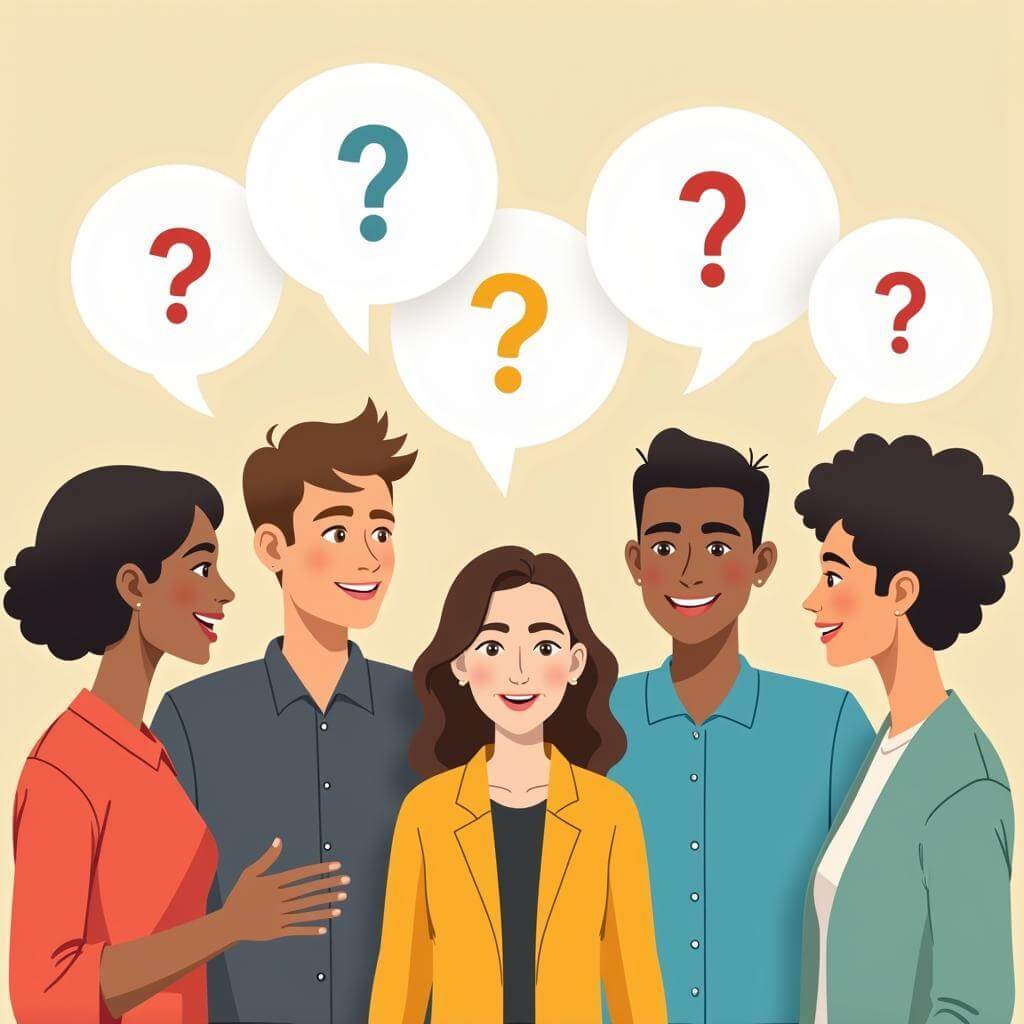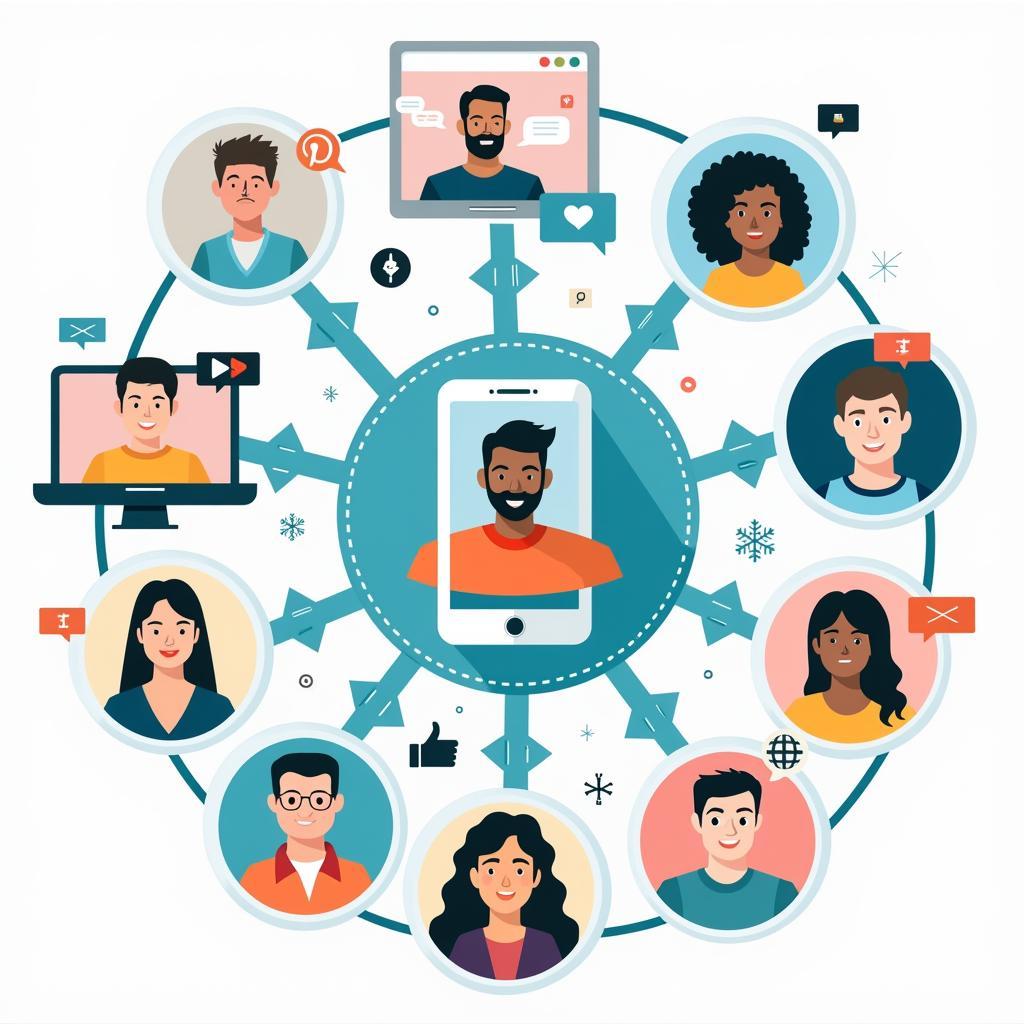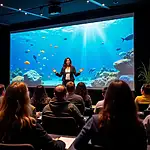The IELTS Speaking test often includes topics that require candidates to reflect on personal experiences and share insights. One such topic that has appeared in recent exams and is likely to remain relevant is “describe a conversation that made you see something from a different perspective.” This task challenges test-takers to demonstrate their ability to articulate complex ideas and emotions while showcasing their English language skills. Let’s explore how to approach this topic effectively to achieve a high band score.
Part 1: Introduction and Interview
In the first part of the Speaking test, the examiner may ask general questions related to conversations and perspectives. Here are some potential questions and a sample answer:
Examiner: “Do you enjoy having conversations with people?”
Sample answer (Band 8-9):
“Absolutely! I find conversations to be incredibly enriching experiences. They offer unique opportunities to broaden my horizons and gain fresh insights into various subjects. I particularly enjoy engaging in discussions that challenge my preconceptions and encourage me to view things from different angles. These interactions not only enhance my understanding of diverse topics but also help me develop empathy and refine my communication skills.”
 IELTS Speaking – Conversation changing perspective
IELTS Speaking – Conversation changing perspective
Part 2: Long Turn
For the second part of the test, you may receive a cue card with the following task:
Describe a conversation that made you see something from a different perspective.
You should say:
- Who you had the conversation with
- What the conversation was about
- When and where the conversation took place
- And explain how this conversation changed your perspectiveSample Answer (Band 6-7):
“I’d like to talk about a conversation I had with my grandfather last summer. We were sitting in his garden one evening, and he started telling me about his experiences during World War II. I had always known he was a veteran, but I had never really understood what that meant.
He told me about the friends he lost, the hardships he faced, and the impact the war had on his life. It was a very emotional conversation, and it made me realize how lucky I am to live in peacetime. Before this, I had only learned about the war from history books, but hearing my grandfather’s personal stories made it much more real and impactful.
This conversation changed my perspective on war and peace. I now have a deeper appreciation for the sacrifices made by previous generations and a stronger desire to work towards maintaining peace in our world. It also made me value my grandfather’s wisdom more and inspired me to learn from older people’s experiences.”
Sample Answer (Band 8-9):
“I’d like to recount a pivotal conversation I had with my grandfather last summer, which profoundly altered my perspective on war, peace, and the value of historical experiences. We were ensconced in the tranquil setting of his garden one balmy evening when he began to unveil his experiences during World War II.
Prior to this conversation, my understanding of the war was largely academic, gleaned from history books and documentaries. However, as my grandfather eloquently articulated his personal narrative, including the camaraderie he shared with fallen comrades, the grueling hardships he endured, and the indelible impact the war had on his life trajectory, I found my preconceptions being systematically dismantled.
His vivid recollections transported me to a time of unprecedented global conflict, making palpable the fear, uncertainty, and resilience that defined that era. This firsthand account served as a poignant reminder of the immense privilege of living in a time of relative peace and the imperative to safeguard it.
This conversation was transformative in multiple ways. It ignited in me a deeper appreciation for the sacrifices made by previous generations and instilled a more urgent sense of responsibility to contribute to peace-building efforts. Moreover, it illuminated the invaluable wisdom that resides in our elders, prompting me to actively seek out and learn from their lived experiences.
In essence, this dialogue with my grandfather bridged the generational gap, allowing me to view historical events through a more nuanced and empathetic lens. It underscored the power of personal narratives in shaping our understanding of the world and reinforced the importance of preserving and honoring these stories for future generations.”
Follow-up questions:
- How did this conversation affect your relationship with your grandfather?
- Do you think it’s important for younger generations to hear stories from older people? Why or why not?
Sample answer (Band 8-9):
-
“This conversation markedly strengthened our bond. It fostered a deeper mutual understanding and respect between us. I began to see my grandfather not just as a family member, but as a repository of wisdom and historical insight. This newfound appreciation led to more frequent, meaningful interactions, where we’d discuss various topics, from history to current affairs, allowing me to benefit from his unique perspective.”
-
“Absolutely. I believe it’s crucial for younger generations to hear these stories. They provide a tangible link to our collective past, offering insights that textbooks alone cannot convey. These narratives help bridge generational divides, foster empathy, and provide valuable life lessons. Moreover, they help young people contextualize current events and societal changes, promoting a more nuanced understanding of the world and our place in it.”
Part 3: Two-way Discussion
In this section, the examiner will ask more abstract questions related to the topic. Here are some potential questions and sample answers:
Examiner: “How do you think technology has affected the way people communicate and share perspectives?”
Sample answer (Band 6-7):
“Technology has definitely changed how we communicate. Social media and messaging apps make it easy to talk to people from all over the world. This means we can hear different perspectives more easily. However, sometimes people only talk to others who think like them, which can limit their exposure to new ideas. Overall, I think technology has both positive and negative effects on communication and sharing perspectives.”
Sample answer (Band 8-9):
“Technology has revolutionized the landscape of communication and perspective-sharing in multifaceted ways. On one hand, it has democratized information exchange, enabling instantaneous global connectivity through social media platforms and messaging applications. This unprecedented access has exponentially increased our exposure to diverse viewpoints and cultures, potentially fostering greater cross-cultural understanding.
However, this digital revolution is not without its drawbacks. The algorithmic nature of many social media platforms can create echo chambers, where individuals are primarily exposed to opinions that align with their own, potentially reinforcing existing biases and limiting cognitive diversity. Moreover, the brevity often required in digital communication can sometimes lead to oversimplification of complex issues.
Nevertheless, I believe that when used mindfully, technology can be a powerful tool for broadening perspectives. It provides opportunities for meaningful dialogues across geographical and cultural boundaries, facilitating a more nuanced understanding of global issues. The key lies in actively seeking out diverse viewpoints and engaging in thoughtful, empathetic communication, regardless of the medium.”
 IELTS Speaking – Technology and communication
IELTS Speaking – Technology and communication
Examiner: “Do you think it’s becoming easier or harder for people to change their perspectives in today’s society?”
Sample answer (Band 8-9):
“This is a nuanced issue that defies a simple answer. On one hand, the proliferation of information and the ease of access to diverse viewpoints through digital platforms could theoretically make it easier for people to encounter ideas that challenge their existing perspectives. The global interconnectedness facilitated by technology exposes us to a wider range of cultures, beliefs, and experiences than ever before.
However, several factors complicate this potential for perspective change. The phenomenon of confirmation bias, exacerbated by algorithmic content curation on social media platforms, can create insular information bubbles that reinforce rather than challenge existing beliefs. Additionally, the rapid pace of information dissemination can lead to information overload, making it difficult for individuals to critically engage with new ideas and potentially changing their perspectives.
Moreover, the polarization of public discourse on many issues has created an environment where changing one’s mind might be perceived as a sign of weakness rather than intellectual growth. This societal pressure can make individuals more resistant to altering their viewpoints, even in the face of compelling evidence.
That said, I believe that with conscious effort and critical thinking, it is still possible for individuals to change their perspectives. The key lies in cultivating intellectual humility, actively seeking out diverse viewpoints, and engaging in respectful dialogue with those who hold different opinions. Educational initiatives that promote media literacy and critical thinking skills can also play a crucial role in enabling people to navigate the complex information landscape and remain open to new perspectives.
In conclusion, while the current information ecosystem presents both opportunities and challenges for perspective change, the ability to alter one’s viewpoint ultimately depends on individual willingness to engage with new ideas and critically examine one’s own beliefs.”
Key Vocabulary and Phrases for High Scores
-
Pivotal conversation – /ˈpɪvətl kɒnvəˈseɪʃn/ (adj. + n.): A very important or significant discussion that leads to change.
Example: “Our pivotal conversation about career goals led me to pursue a different path.” -
To broaden one’s horizons – /tuː ˈbrɔːdn wʌnz həˈraɪznz/ (phrase): To expand one’s range of interests, experiences, and knowledge.
Example: “Traveling abroad helped me broaden my horizons and gain new perspectives.” -
To view things from different angles – /tuː vjuː θɪŋz frəm ˈdɪfrənt ˈæŋɡlz/ (phrase): To consider various perspectives or viewpoints on a subject.
Example: “A good leader must be able to view things from different angles to make informed decisions.” -
To dismantle preconceptions – /tuː dɪsˈmæntl ˌpriːkənˈsepʃnz/ (phrase): To break down or remove previously held ideas or assumptions.
Example: “The documentary effectively dismantled many preconceptions about climate change.” -
Nuanced understanding – /ˈnjuːɑːnst ˌʌndəˈstændɪŋ/ (adj. + n.): A sophisticated, detailed comprehension that recognizes subtle differences.
Example: “Her nuanced understanding of the situation allowed her to propose an effective solution.”
Examiner’s Advice
To excel in the IELTS Speaking test, particularly when discussing topics like a perspective-changing conversation:
-
Practice introspection: Regularly reflect on your experiences and how they’ve shaped your views. This will help you articulate your thoughts more clearly during the test.
-
Expand your vocabulary: Focus on learning and using advanced vocabulary related to perspectives, communication, and personal growth. Use these words naturally in your responses.
-
Develop your ideas: Don’t just state your opinions; explain them thoroughly. Use examples and personal experiences to support your points.
-
Work on fluency: Practice speaking on various topics without long pauses. Regular practice will help you become more comfortable and fluent.
-
Pay attention to pronunciation: Work on clear pronunciation, especially for words commonly used when discussing perspectives and conversations.
-
Use a variety of grammatical structures: Incorporate complex sentences and different tenses to demonstrate your language proficiency.
-
Stay relevant: Always keep your answers relevant to the question asked. It’s easy to go off-topic when discussing personal experiences, so maintain focus.
-
Be authentic: While it’s important to use advanced language, ensure your responses sound natural and reflect your true experiences and opinions.
By following these tips and regularly practicing, you can improve your performance in the IELTS Speaking test and increase your chances of achieving a high band score.


